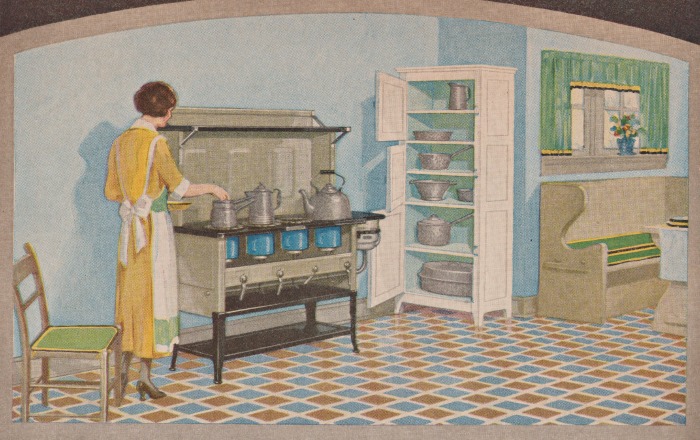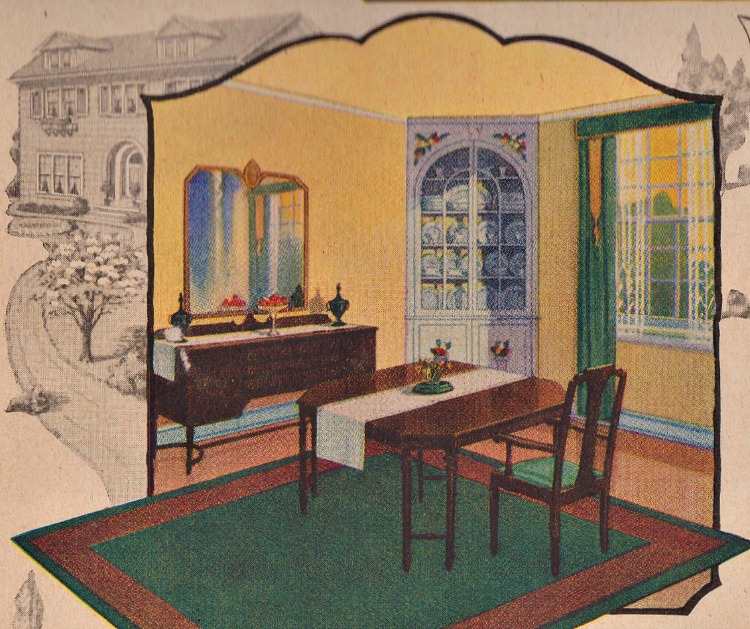
Is homemaking truly a job? When a wife says, “I’m a homemaker,” many people only hear it to mean “I don’t have to work.” How does a homemaker respond to that bit of ridiculousness? Nothing could be further from the truth! Unfortunately, that attitude has persisted for generations. Enjoy part 1 of this essay. It was written in 1932, by a woman who gives a description of the best profession she could imagine–a homemaker.
Homemaking is my job
When the census-taking man called at our home, I parked the babies in the sandpile. Then, I sat for half an hour answering his questions. When he came to my occupation, he looked from under his brows in all solemnity and asked, “You don’t do anything, do you?” Without even awaiting a reply, he wrote, “Occupation–Housewife.”
I protest and refuse to be draply set aside! I demand the title of Homemaker (LOL I like either title but prefer “Housewife.” To each his own!) and defy the world to say that homemaking is doing nothing. It is a profession, and those of us so listed labor at it. It is a labor of love. There is no monthly salary. The pay is merely the little sweetnesses of everyday family life, and I must sift them out of their attendant pains and sacrifices.
The business of making a home–an honest-to-goodness home, with cookies and pillow fights and firelit hours and books and beds and joys and tears–that is a job–a great, grand task.

An Introduction to my homemaking
I happen to be not only a Homemaker but a Farm Homemaker. I glory in it.
That I am only one among thousands of others is a point to be stressed. I am representative of my class, and I am decidedly not stooped nor wrinkled. I am sun-tanned and straight two pounds underweight from a summer of strenuous hours in Ye Olde Swimming Hole (I do a rather nice crawl stroke, too.) My hair has a natural wave, and doesn’t string, and I never wear sunbonnets. Instead of drab calico, I make my own house frocks of gay, fast-colored prints with fresh white collars, and I wear happy-looking aprons over them.
While we are getting acquainted, I might add that I have been at my present job for five years, and am still in my twenties. I earned my own living for five years before I married. At present I have two sons–husky young lads of two and three.
My Home
From a honeymoon of care-free happiness, I came to our Old Homestead, a rambling farmhouse built half a century ago, and typical of the times–high ceilings, plastered walls, no closets, wood heaters, not enough windows, coal-oil lamps.
There is a big zinc sink without a drain. Running water has been installed, but drinking water is still drawn from a well with a rope and bucket and pulley. There is a temperamental wood range for cooking, and you raise a door and go down a flight of steps into the dim, dirt-floored cellar.
No danger of unemployment for the farm woman. There is work of one kind or another always waiting for her, but it is certainly varied enough, and busy persons are usually happy ones. It seems to me that caring for your loved ones is a God-given privilege. It is not in the least degrading to preform every task connected with making a home, rather it lends a certain dignity to life.

Laundry
The farm wife over her wash tub! How our novelists have harped on that plaintive theme,–a bent figure slaving away at endless piles of dirty clothes. Quite naturally there are days when it seems hard, when you wake up out of sorts and everything seems hard, but there are many more wash days that are fun!
Yes, kind sir, I do all of the washing for my own house and family, and as yet have no washing machine. I do it in tubs with the help of a washboard. I get as much satisfaction out of changing a heap of soiled, wrinkled clothing into fresh-smelling, orderly piles as I ever got out of eighteen holes of golf. Besides, I am sure that I get as much exercise. Hanging snowy sheets and shirts against a cloud-hung blue sky with fresh-clipped green grass under foot, and a vagabond breeze in the air, is fun!
Please do not gather from this that I am a low-brow drudge who knows nothing else. I play McDowell and Tschaikowsky because I love them, and I enjoy Sinclair Lewis and Edna Ferber and Thackeray and Wells. Washing just happens to be one of my sidelines.
Cooking
Another sideline is being my own butcher and baker and candlestick maker. It is a good thing to learn complete independence, especially when there are no shops just around the corner, and no money to spend. At first this seemed a hardship. But I have learned my job so thoroughly that I can now serve a complete and well-balanced meal from soup to nuts without counting on anyone.
From my cellar I can bring tomatoes, corn, cured meats (venison in season), fruit, jellies, preserves, relishes, pickles, and vegetables. All of them are raised on our own farm. Of course all this is work, but there is only one difference in working for money with which to buy food, and working directly for the food itself. That, of course, is the immense pride that you take in your own products.
to be continued…
Read the next installment here.
Discover more from A Housewife Writes
Subscribe to get the latest posts sent to your email.
5 Comments;
What a fun read! Thanks for sharing! I look forward to reading the other parts of the story 🙂
I’m glad you liked it! All four parts of her essay are posted on the blog now, and they’re all great, in my opinion. 🙂
My husband hated the term ‘housewife’. He used to say I wasn’t married to out house, I was married to him and I was in every sense of the word a ‘homemaker’. I loved being a homemaker, wife to my husband and mother to our children. The greatest career a woman could have. Too bad it has been tarnished by those who look down on us while they rely on others to do the things we do for those we love.
That’s an interesting take–I always equated “housewife” with “wife of the house”, similar to “man of the house.”
I agree that it’s the greatest career ever and I’m glad I get to be one, too. 🙂